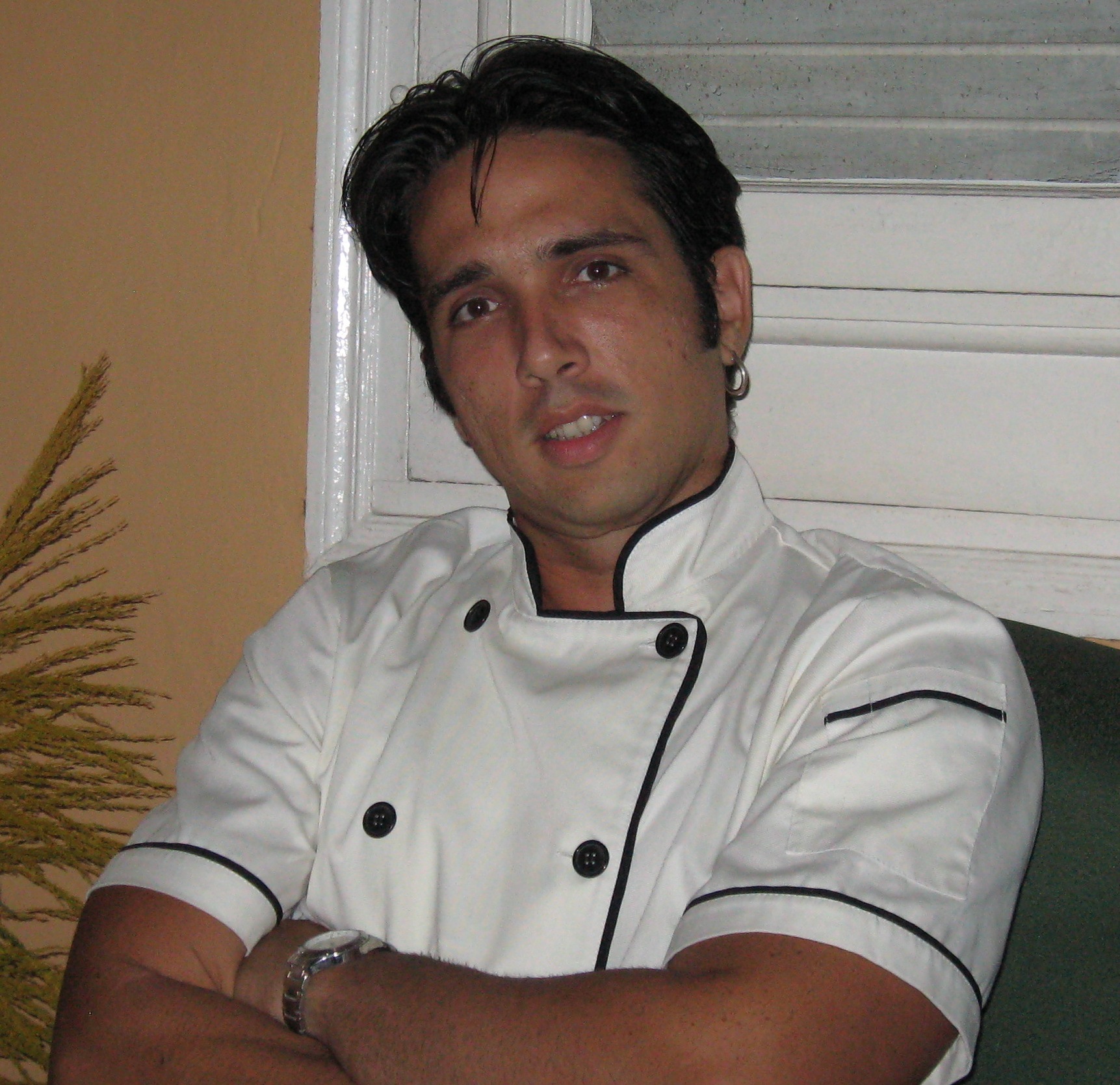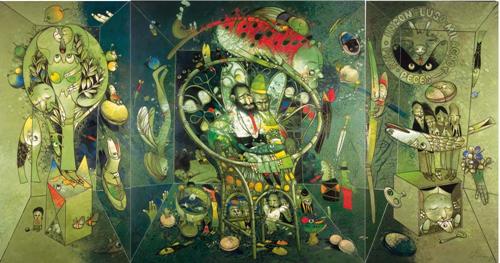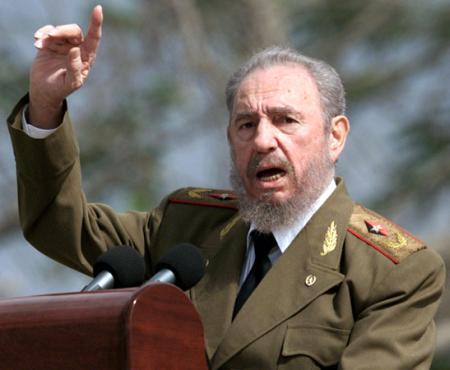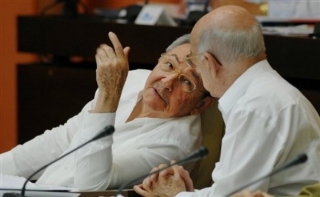An article by a foreign news agency recently reported on the Internet, “Cuban Dissidents at a Crossroads”by Paul Haven and Andrea Rodríguez of the Associated Press, suffers from, at least, two of the most common and serious limitations of accredited journalism in Cuba: contempt for the nationals of this Island and an almost total disregard for the history and idiosyncrasies of the country about which they aim to “inform”.
Without a doubt, politically-connected jobs and those who hold those jobs enjoy fertile ground in certain press agencies, which explains how Cuba has become a haven for some who, without much effort and without risk of getting a mild slap on the wrist when they get too close to tolerance limits set by the authorities, rush to “analyze” a stage that they have barely glimpsed. It seems that, to be a reporter for “the Cuban reality,” all a foreign journalist needs is a good camera, a bag with a corresponding water bottle, a couple of pairs of shorts and some cotton shirts to better withstand the heat, a dirty pair of sandals for smudging their heels while walking on the smelly and dusty streets of our battered Havana — because, in addition, they don’t usually venture out to explore the deep and provincial Cuba, the one that suffers even more than this oblivion capital — and, finally, to report to their agencies, through Internet connections. I imagine that Cuban journalistic assignments must be comparable to winning the lottery for such press professionals. After all, they will always have an opportunity to later publish a quite different Cuban reality to the one they reported while on assignment here, thus they can reap additional financial benefits while cleaning up their journalistic dignity with this exercise of retroactive ethics.
Only thus could the following statement be explained: “When ‘Ladies in White’ were established as a protest for the imprisonment of activists and journalists in Cuba in 2003, the mission of this group of women was simple: to attain freedom for their loved ones”. And the subtlety lies is in the details and the way in which ideas are placed, because the mission of the Ladies in the beginning was, indeed, the release of their relatives, but because it is a struggle waged almost single-handedly and in a dictatorship, such a task could not be as “simple” as all that. In fact, the evolution of seven years’ experience led to a deepening in the awareness of that civic movement and expanded its horizons, raising the levels of its demands.
Another trendy suggestion points to the march of the Ladies in White as a kind of Sunday entertainment, since they move “in a quiet suburb of Havana”, as if they levitate over the city without going through Centro Habana neighborhoods or others in the capital or in the provinces, which may not be as mild as the patrician Miramar neighborhoods. In such marches, they are not attacked by ordinary people, but it is a rare occasion when they are not harassed by the pack of hounds recruited by the political police (“pro-official” groups, the referenced journalists call them, instead of defining them as what they are: government employees). In fact, the attacks against the Ladies are taking place more and more often, and the violence of the henchmen’s harassment is becoming more pronounced.
Another element that the Ladies in White and their cause base their rationale on is the persistence of the well-known “gag law” that put 75 independent journalists and many other dissidents behind bars. The mere existence of this provision in the country’s legal body legitimizes repression, abolishes freedom of expression, and allows for possible future arrests for the same or similar causes, that is, expressing ideas not in line or contrary to the stipulations of the regime. The coherence of the Ladies in White lies precisely in understanding that fixing the effect is not enough, but eliminating the causes that precipitate it is essential in order to prevent its recurrence.
Some other inaccuracies, if we must call them that, emerge in the oblique analysis of reference, as inferred from a sentence as naive as it is harmful, considering the release of prisoners a fact that “left the Ladies in White without a cause” and placed “the dissident community” at “a crossroads and challenged with redefining itself and gaining the support of a society that has never seemed particularly receptive or even aware of its message”. It would seem that these blundering journalists overlook the fact that this society’s only source of information about dissidents and opposition proposals is what’s offered by the media, an absolute state monopoly dedicated to systematically demonizing and slandering any alternative proposal, that the government employs all available resources — in particular the repressive forces — to maintain a fence that prevents communication between the dissidents and society, and that civil society which was just beginning to gain strength in the Republic was demolished starting in the early years of the 1959 revolution, and five decades of mute terror has sown in ordinary Cubans either silence or the sham of phony loyalty to the government as elemental survival strategies.
In fact, the “informal poll” conducted by the AP on 30 Cubans “consulted at random”, resulting in five (16.6%) being able to identify Laura Pollan, nine (30%) Guillermo Fariñas, three (10%) the blogger Yoani Sánchez could, in fact, be considered an achievement. These results are quite flattering for the dissidence, taking into account conditions in Cuba. Just two years ago, the corollaries of such a survey would have yielded much lower figures, virtually nil.
Cuban dissidence is truly small and fragmented, as befits a country in which, conversely, the dictatorship is huge and monolithic. But again, the mistake of making woeful comparisons is made, because civic resistance here is not comparable in any way, nor does it have any intention to “emulate” the upheavals that took place in the Arab world. Comparing Cuban social reality, not just with the Arab world, but irrationally — for its addition — with those of countries like Great Britain, Spain or Greece, can only be classified as a childish fantasy or a perversion. The aberration is further strengthened when seasoned journalists dab the olive-green autocracy with rosewater.
“And though political freedom may be lacking in a country that was ruled by one or another of the Castro brothers for over 50 years, the government left the (dissident) movement partially without argument when it allowed for greater economic opportunities in recent months, and when it promised more reforms soon”. (Parenthesis added by this author). Viewed in this way, the growing discontent, the many expressions of protest, and the demands for rights that are taking place across the Island in increasing waves, and despite beatings, rallies and arrests suffered by protesters, would seem the mere nonsense of occasional rioters and that this country should have enough with a handful of kiosk-type, pint-sized reforms.
What these foreign reporters don’t explain how to justify that the resistance has been gaining strength precisely in recent months, when we Cubans have “greater economic opportunities” thanks to the called-for and misnamed “reforms” of General R. Castro, which, rather than transforming the country’s socioeconomic plight, have become the latest government defense parapet against public opinion, and a kind of safety valve, despite their shortcomings, in the presence of raising pressure in Cuba and the irreversibility of the general crisis, barely a precarious rein to brake the inevitable end of “the model”.
And here is more evidence of a trick of the subconscious of those who, without knowing us, often look at us with condescension and qualify us disdainfully, because, while European grumblers are known as “outraged” and can afford the luxury of marching in the thousands, despite all the imperfections of democracy, they have the rights that even foreign journalists don’t question, and the opportunity to elect who their leaders will be; there isn’t much for us, the Cuban outraged, to do. But, in perspective and adapting each situation, the Cuban dissident movement would be comparable and even superior to the protests that are taking place in the free world, for theirs is a universe that has access to information and social networks, with unions, civic organizations, rights and freedoms, all the choices that are denied to us.
It is true that the “traditional” Cuban opposition has lacked in consistency, sound strategies and connection to society as a whole. The root of the evil lies in, among many other causes, civic orphanhood of a nation that was never known for being responsible and where politics is always a subject “for others” to see to. But, at their inception, European transitions have never been characterized by having brandished great political plans that hailed multitudes, or by the abundance of leaders who were of great importance or of large-scale social impact, and none of this ever deterred the changes that took place.
Obviously, some observers hope in vain for an impossible miracle to happen in Cuba, while certain accredited journalists seem to be expecting that nothing really takes place that would threaten the tropical affair of a journalism that is bland, irresponsible and without ethical commitments.
Translated by Norma Whiting
September 30 2011








 While this Sunday in Libya the final hours of the Gaddafi dictatorship transpired, the official newspaper Juventud Rebelde, in an article published on page 7, affirmed, citing a Telesur report, “The Libyan government denied the alleged departure of Muammar al-Gaddafi.” According to this newspaper, echoing a Gaddafi’s spokesman, Ibrahim Mussa, such fabrications were part of NATO’s “psychological warfare and media campaign to spread panic among the population”. The spokesman added that the Libyan population responded to these slurs “with loud laughter because they do not believe that the Libyan leader will leave the country.”
While this Sunday in Libya the final hours of the Gaddafi dictatorship transpired, the official newspaper Juventud Rebelde, in an article published on page 7, affirmed, citing a Telesur report, “The Libyan government denied the alleged departure of Muammar al-Gaddafi.” According to this newspaper, echoing a Gaddafi’s spokesman, Ibrahim Mussa, such fabrications were part of NATO’s “psychological warfare and media campaign to spread panic among the population”. The spokesman added that the Libyan population responded to these slurs “with loud laughter because they do not believe that the Libyan leader will leave the country.”


